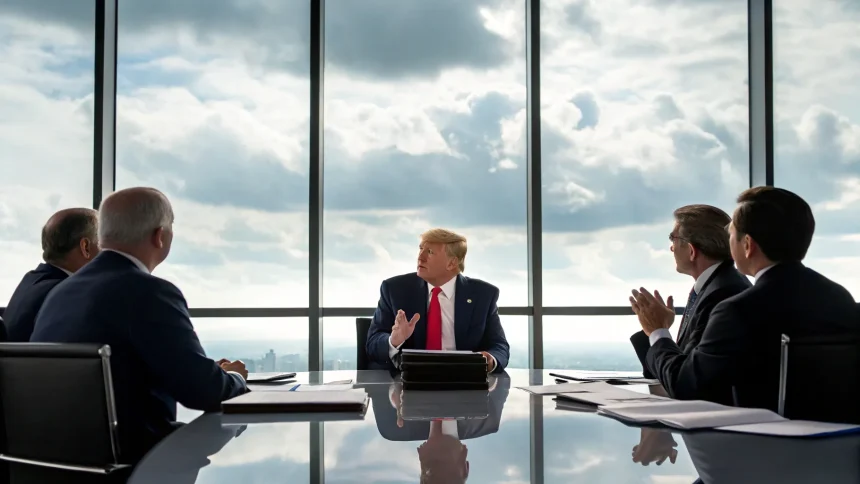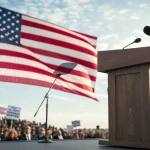Donald Trump’s approach to business relations during his presidency showed striking similarities to Chinese government tactics, according to policy experts and business leaders who have analyzed his administration’s economic strategies. This approach appears poised to return if he regains the White House in 2024.
Former President Trump employed methods that mirrored China’s state-directed capitalism, using presidential authority to pressure companies into following his preferred policies while rewarding allies and punishing perceived opponents. This strategy represented a significant departure from traditional Republican free-market principles.
The China-Inspired Business Approach
Trump’s administration frequently used threats of tariffs, regulatory scrutiny, and public criticism to influence corporate behavior. When companies announced plans to offshore manufacturing or made decisions counter to his economic agenda, Trump often responded with direct threats via social media or public statements.
This approach bears notable similarities to how the Chinese Communist Party exerts control over its business sector. In China, companies understand that government favor is essential for success, and those who cross political leadership face swift consequences.
“The similarities between Trump’s approach and China’s business governance model are not coincidental,” said an economic policy analyst who studied both systems. “Both rely on personal relationships, loyalty tests, and the threat of government intervention to achieve compliance.”
Carrots and Sticks
The Trump administration deployed both incentives and penalties to shape business behavior:
- Tax cuts and deregulation benefited companies aligned with administration priorities
- Threats of antitrust investigations targeted tech companies perceived as politically hostile
- Government contracts were awarded with apparent consideration of corporate loyalty
- Public praise was given to companies that announced U.S. investments or manufacturing plans
This system of rewards and punishments created an environment where corporate leaders felt pressure to publicly support administration policies, regardless of their private views. Many executives reported making business decisions with potential presidential reaction in mind.
The Impact on Corporate America
The business community’s response to Trump’s governance style evolved over his presidency. Initially, many executives embraced tax cuts and deregulation while hoping to avoid direct confrontation. By mid-term, a pattern emerged where companies would make announcements about U.S. investments or hiring that could earn presidential favor, even when such plans were already in development.
“Companies learned to play the game,” explained a corporate governance expert. “They would time announcements to coincide with White House priorities or frame routine business decisions as responses to administration policies.”
This dynamic created uncertainty in boardrooms across America. Business planning became complicated by the need to consider potential presidential intervention, similar to how Chinese companies must factor in Communist Party priorities when making strategic decisions.
Looking Forward: 2024 Implications
As Trump campaigns for a second term, his economic team has signaled an even more aggressive approach to corporate governance. Proposals include expanded tariff authority, greater control over Federal Reserve policy, and increased scrutiny of companies that embrace environmental or social initiatives contrary to administration views.
Business leaders are preparing for this possibility by gaming out scenarios and developing strategies to navigate a potential return to this governance model. Some are delaying major decisions until after the election, while others are preparing public announcements that could curry favor with a second Trump administration.
The long-term effects of this governance approach remain unclear. Critics argue it undermines free-market principles and creates economic inefficiency by forcing companies to make politically motivated rather than economically optimal decisions. Supporters counter that it prioritizes American workers and national interests over shareholder returns.
What’s certain is that Trump’s business governance approach represents a fundamental shift in the relationship between government and the private sector in America—one that draws inspiration from an unexpected source in China’s economic model.







